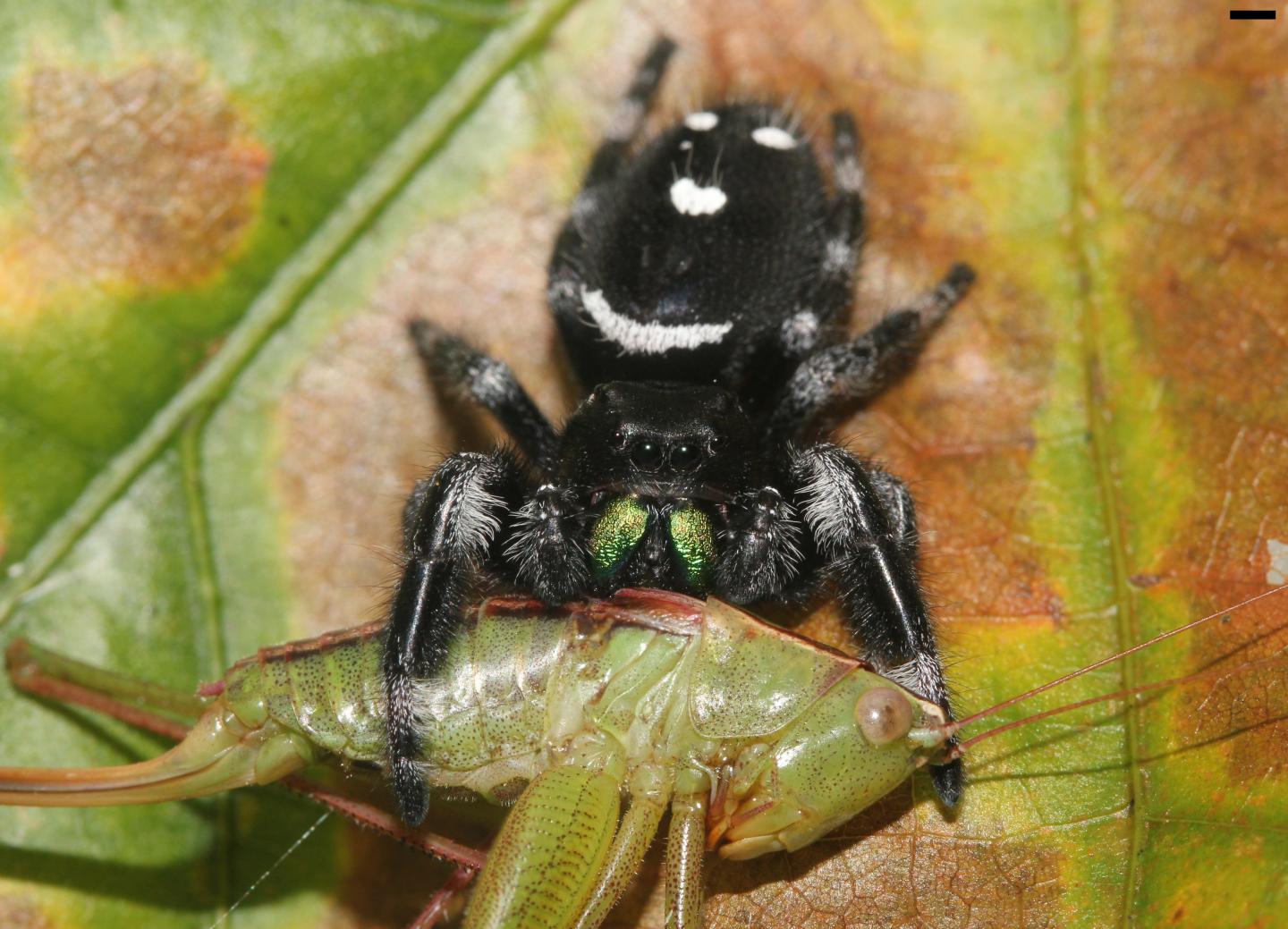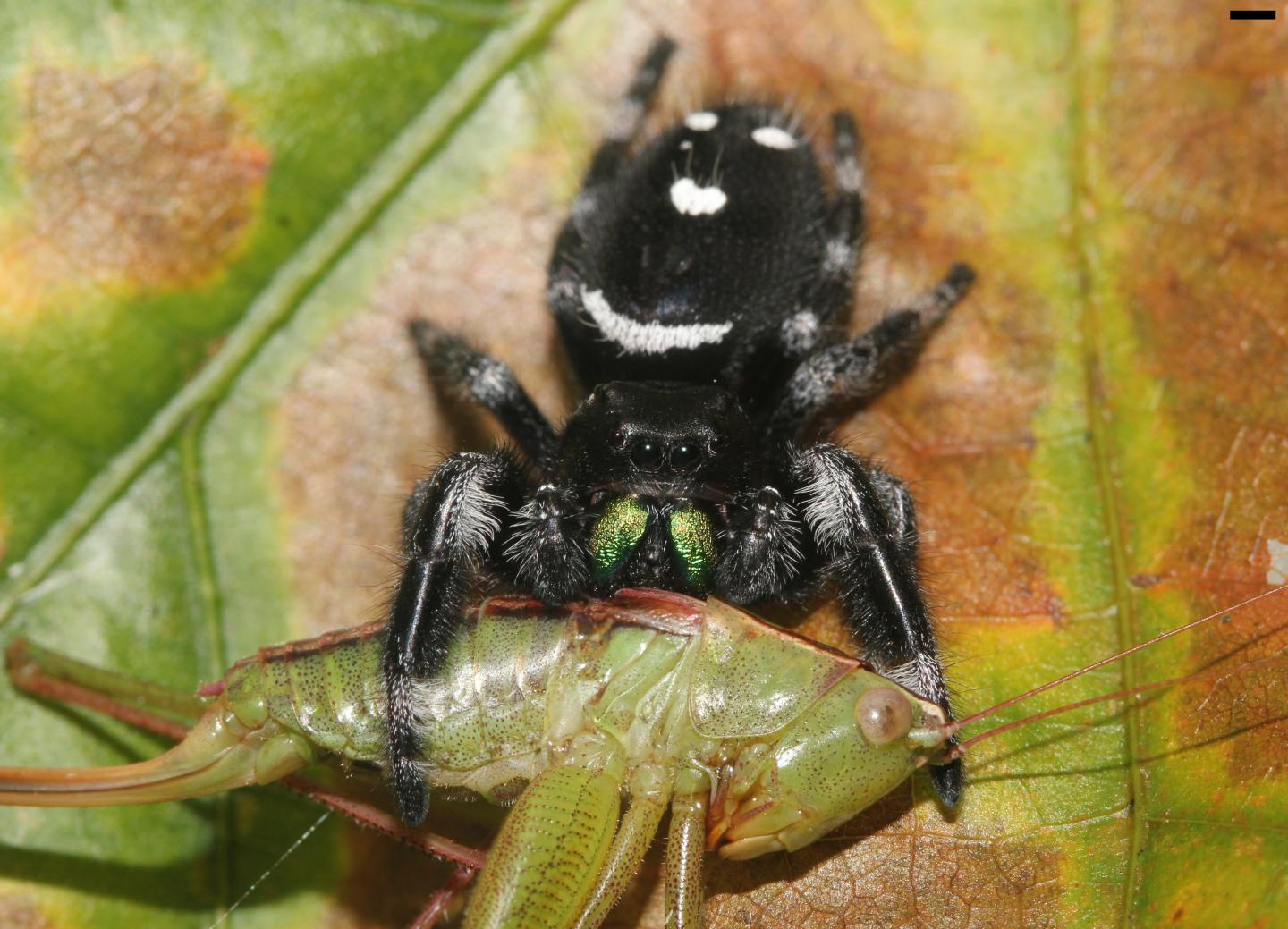
Credit: David E. Hill, Peckham Society, Simpsonville, South Carolina
A new study reveals some stunning estimates about just how much the world's spiders eat annually: between 400 and 800 million tons of insects, springtails, and other invertebrates. In the process, these eight-legged carnivores play an important role to keep countless insect pests, especially in forests and grassland areas, in check. This is according to the findings of Martin Nyffeler of the University of Basel in Switzerland and Klaus Birkhofer of Lund University in Sweden and the Brandenburg University of Technology Cottbus-Senftenberg in Germany, published in Springer's journal The Science of Nature.
Using data from 65 previous studies, Nyffeler and Birkhofer first estimated how many spiders are currently to be found in seven biomes on the planet. Their conclusion: altogether there are about 25 million metric tons' worth of them around. Most spiders are found in forests, grasslands and shrublands, followed by croplands, deserts, urban areas and tundra areas.
The researchers then used two simple models to calculate how much prey all the world's spiders as a whole kill per year. In their first approach, they took into account how much most spiders generally need to eat to survive, as well as census data on the average spider biomass per square meter in the various biomes. The second approach was based on prey capture observations in the field, combined with estimates of spider numbers per square meter. According to their extrapolations, 400 to 800 million tons of prey are being killed by spiders each year.
For a sense of just how much this is, take the following into account: all humans together consume an estimated 400 million tons of meat and fish annually. Whales feed on 280 to 500 million tons of seafood, while the world's total seabird population eats an estimated 70 million tons of fish and other seafood.
According to further calculations, spiders in forests and grasslands account for more than 95 percent of the annual prey kill of the global spider community. The figure reflects the fact that forests, grasslands and savannas are less frequently disturbed than for instance agricultural or urban areas, and therefore allow for greater spider biomass.
"These estimates emphasize the important role that spider predation plays in semi-natural and natural habitats, as many economically important pests and disease vectors breed in those forest and grassland biomes," says lead author Martin Nyffeler.
According to the researchers, spiders are not only important predators, but are also valuable sources of prey. Between 8,000 and 10,000 other predators, parasitoids and parasites feed exclusively on spiders, while spiders at the same time form an important part of the diet of an estimated 3,000 to 5,000 bird species.
"We hope that these estimates and their significant magnitude raise public awareness and increase the level of appreciation for the important global role of spiders in terrestrial food webs," adds Nyffeler.
###
Reference:
Nyffeler, M. & Birkhofer, K. (2017). An estimated 400-800 million tons of prey are annually killed by the global spider community, The Science of Nature. DOI 10.1007/s00114-017-1440-1
Media Contact
Melanie Lehnert
[email protected]
49-622-148-78122
@SpringerNature
http://www.springer.com
############
Story Source: Materials provided by Scienmag





